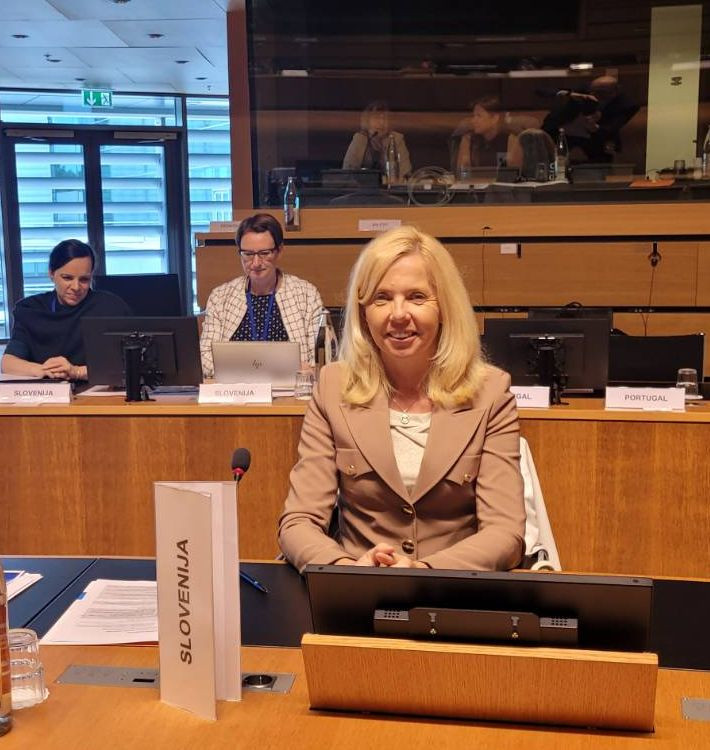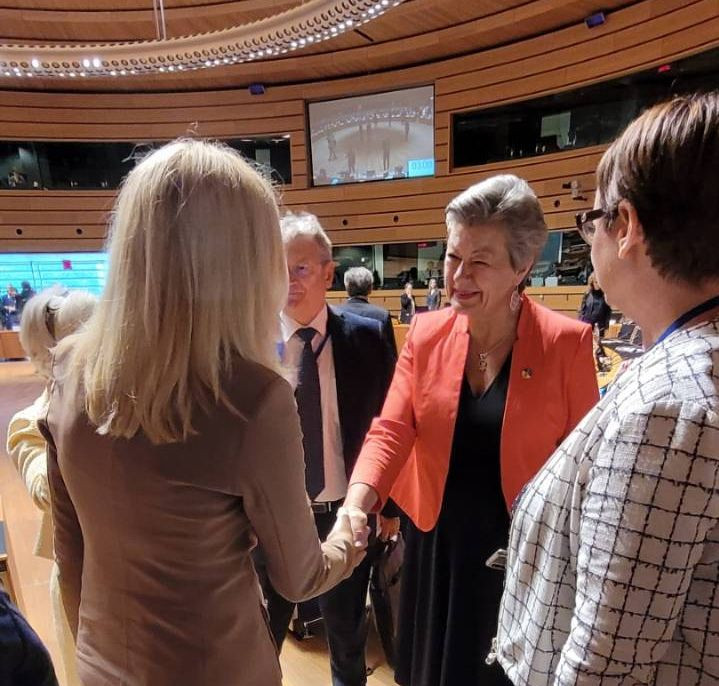Minister Bobnar attends meeting of Home Affairs Ministers in Luxembourg
In the morning, the ministers discussed migration and asylum. They largely agreed on a gradual approach to the Pact, which will be worked on by the incoming Presidency. France tested the support among ministers for adopting a general approach on the Screening Regulation and the Regulation on the Establishment of Eurodac. Several ministers expressed support for a declaration defining relocation as an expression of solidarity. These countries will voluntarily participate in the relocation and the French Presidency expects them to announce their quotas soon.
The situation in Ukraine and the review of the implementation of the Ten-Point Plan endorsed by the Council in March this year were also on the agenda of the interior ministers. The humanitarian aspect and the care of displaced persons remain at the forefront of Member States' activities, while the security aspect is also of paramount importance. "Although we have not yet detected an increase in the presence of illegal weapons or their smuggling in Slovenia as a result of the war in Ukraine, we are actively monitoring the situation," explained Bobnar and added that we needed to take decisive and effective action at the EU level to prevent this from happening. In Slovenia, we have also stepped up our preventive activities in cooperation with civil society and NGOs to prevent trafficking in human beings.

Minister of the Interior Tatjana Bobnar | Author Ministrstvo za notranje zadeve
Before lunch, the ministers met in the Schengen Council format and held an exchange of views on key issues related to the state of play in the Schengen area, including on the basis of the European Commission's report published in May, which in Slovenia's opinion provides a good basis for further political governance of the system.
“In my view, two elements are crucial for the functioning of our common area without internal border controls, namely the effective protection of the EU's external borders, with Frontex playing a key role, and the restoration of trust among Member States," stressed Bobnar. Slovenia is committed to upholding rights. She also presented the situation in Slovenia, which so far this year has accepted over 3,000 applications for international protection.
The Minister called for finding appropriate solutions to prevent secondary movements and improve return, while respecting all human rights. We also need to complete the overhaul of the legislative framework sooner rather than later, with the Regulation on the screening of third-country nationals at external border and the updated Eurodac Regulation being particularly important for Slovenia, as well as the recast Schengen Code, on which the Council has reached a mandate for negotiations with the European Parliament. The aim of the recast Code is to create a resilient and strong Schengen area, ready to meet new challenges in managing the EU's external and internal borders, and to ensure its proper functioning. The Minister said that Slovenia supported the proposal in principle, but highlighted the provision on the reinstatement of internal border controls. Slovenia does not oppose it in principle, but firmly believes that any such reinstatement must always comply with the principles of proportionality and urgency and, above all, that it must be a temporary measure, introduced only when other alternative measures have been exhausted. "I cannot therefore support a measure that is not time-limited," she said, recalling that several Member States have been maintaining internal border controls for several years, which is contrary to the fundamental principle of the Schengen area and - as the Court of Justice of the EU recently found - contrary to the existing acquis.
The Ministers also approved mandates for negotiations with the European Parliament on the proposal for a Directive on information exchange, the proposal for a Prüm Regulation and the proposal for a Regulation on the EU Drugs Agency. These are important legislative acts in the area of strengthening police cooperation and the effective exchange of information. The proposal for a Prüm Regulation, which concerns the automated data exchange for law enforcement cooperation, introduces a number of innovations, building on the achievements of the Slovenian Presidency of the Council of the EU in the area of searching for missing persons and unidentified bodies.

Minister Tatjana Bobnar and European Commissioner Ylva Johansson | Author Ministrstvo za notranje zadeve

